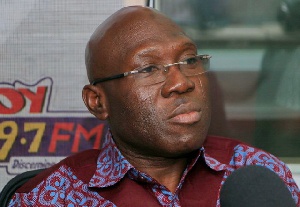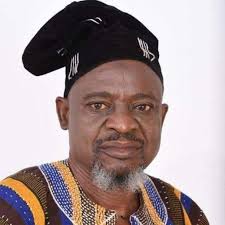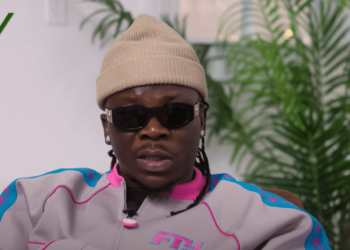The suspended Chief Justice, Gertrude Araba Esaaba Torkornoo, has come under further criticism for her recent public engagement, with legal and political experts describing her actions as unethical, contemptuous, and politically motivated.
The backlash follows her decision to speak publicly about alleged violations of her rights in the ongoing impeachment process being conducted in accordance with Article 146 of Ghana’s 1992 Constitution.
Private legal practitioner and former Member of Parliament (MP) for Tamale Central, Hon. Inusah Fuseini, said that the Chief Justice’s move to engage the media reflects a deliberate attempt to sway public opinion rather than respect due legal process.
According to him, the public statements betray a departure from constitutional decorum. Hon. Fuseini questioned the motives behind the suspended Chief Justice’s press engagement, describing it as a tactic driven by emotion and personal conviction rather than legal principle.
“What the CJ has done is largely to court public sympathy for her case,” he stated, explaining that while the Chief Justice may not have broken the law by speaking publicly, her conduct was unethical given the nature of her office and the gravity of the process underway.

“If the suspended Chief Justice were still in active service, was presiding over a case, and while the case was still ongoing, the parties to the matter came out and organized press conferences against what was going on in her court, I don’t think that she would have taken it lightly”
Hon. Inusah Fuseini, Private Legal Practitioner and Former MP for Tamale Central
“She’s engaged in strenuous attempts to make proceedings at the committee public,” Mr Fuseini said, stressing how Chief Justice’s insistence on public hearings directly contravened the constitutional mandate for proceedings under Article 146 to be held in camera.
The former MP further faulted the suspended Chief Justice for failing to seek redress through official channels. He contended that there were legitimate mechanisms for challenging the process if she believes her rights had been violated and added that her decision to bypass those options was “condemnable.”
Compromising Security
Political analyst and governance expert, Jonathan Asante Okyere, echoed these concerns, asserting that suspended Chief Justice Torkornoo’s actions were more akin to political strategy than judicial conduct.
“Gertrude Torkornoo is more of a politician than a judge,” he expressed, pointing to the calculated nature of her public outreach. For him, her decision to enter the public domain with such sensitive matters risked not only contempt but also the compromise of state security.

“She is imperiling herself in actual fact, and she’s virtually exposing her security.
“When you rise to the position of a Chief Justice, obviously, you’ll be in possession of top governance information, maybe some kind of secret, so to speak – and so you are not an ordinary Ghanaian or an ordinary person who can go into this kind of grandstanding”
Jonathan Asante Okyere, Political Analyst
Mr. Okyere went further to suggest that the nature of the suspended Chief Justice’s actions should be classified as misconduct, concluding that her posture undermines the integrity of the very office she seeks to defend.
The impeachment process, which is being conducted through the Pwamang Committee, has drawn national attention, not only due to the stature of the individual involved but also because of suspended Chief Justice Gertrude Torkornoo’s public defiance of long-established legal procedures.
The debate continues as to whether her actions thus far represent a legitimate fight for justice or a breach of ethical boundaries that warrant further sanctions.
READ MORE: CIB Ghana Unveils New Digital Academy and Leadership Programme



















